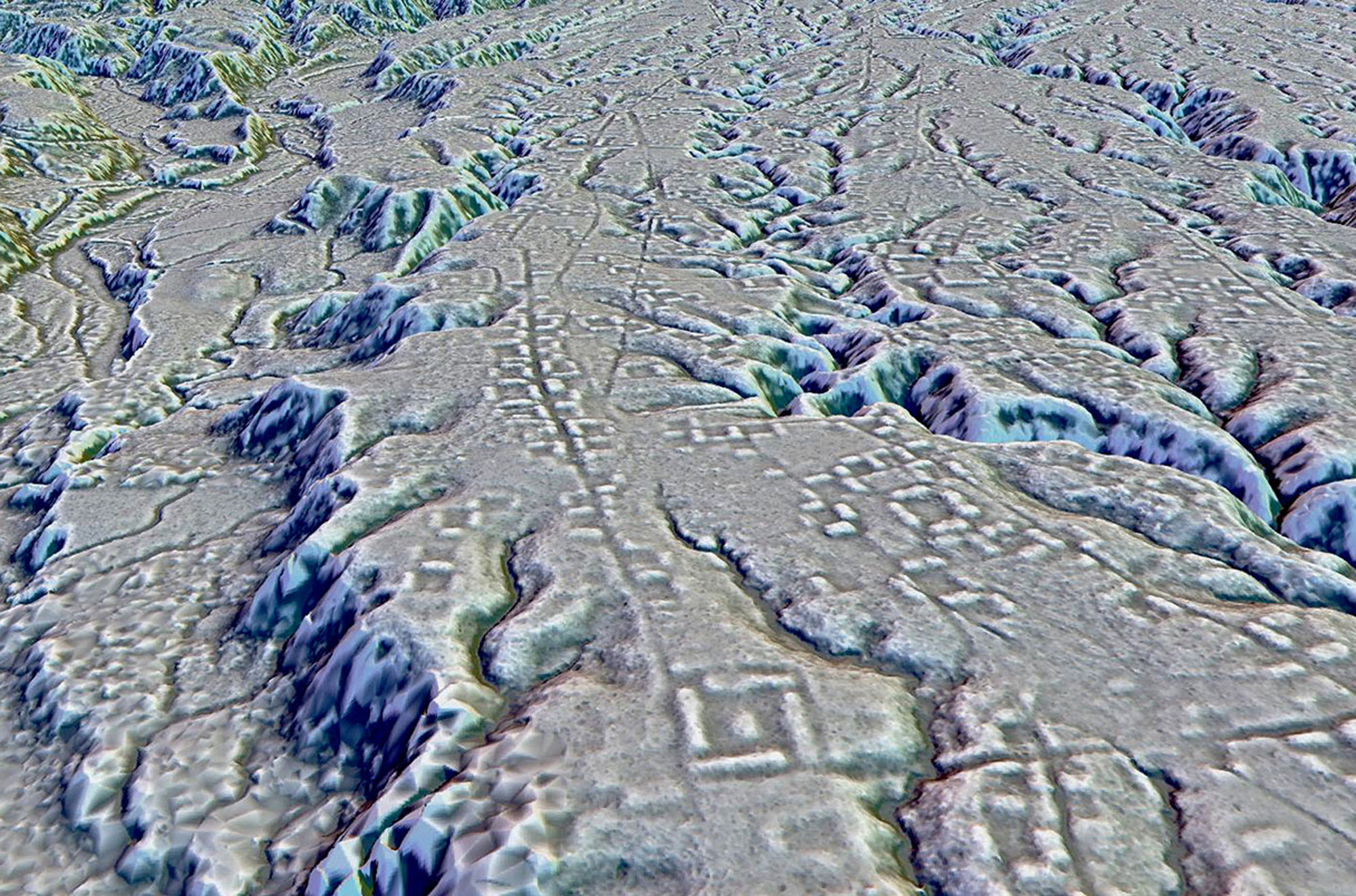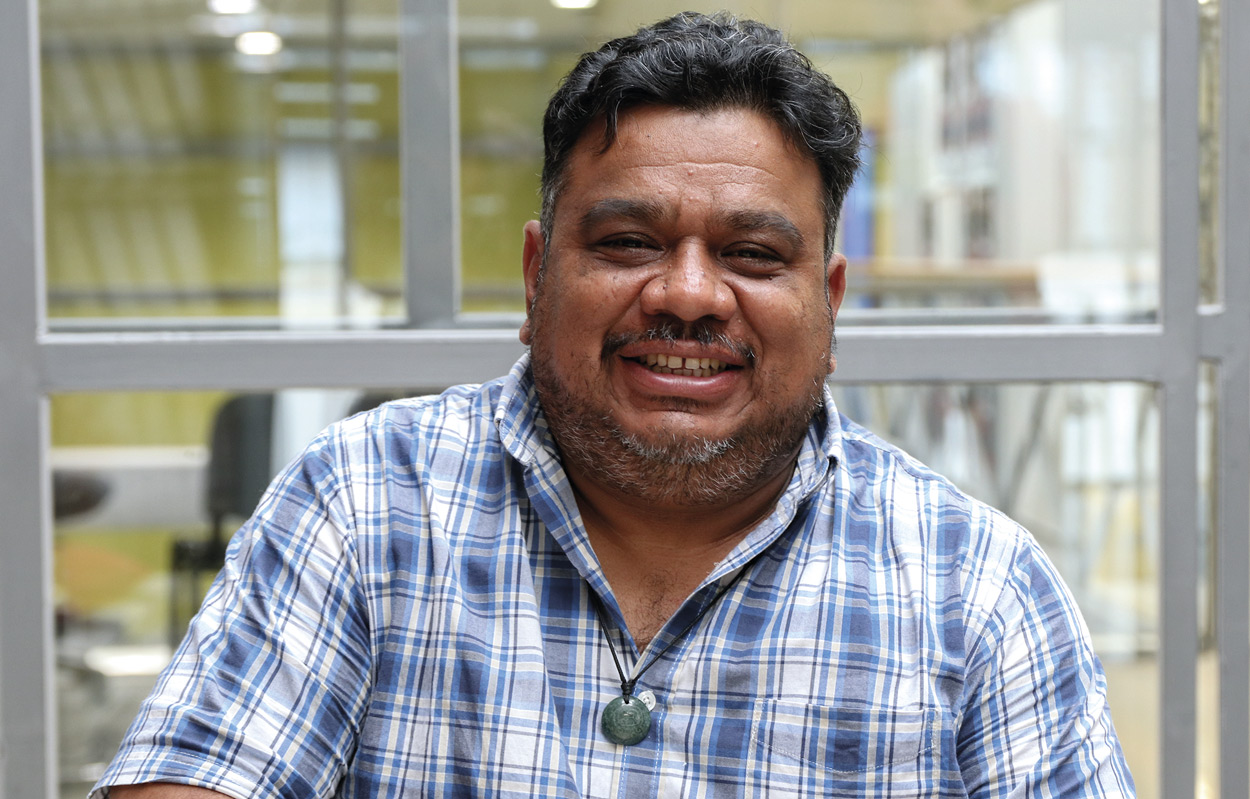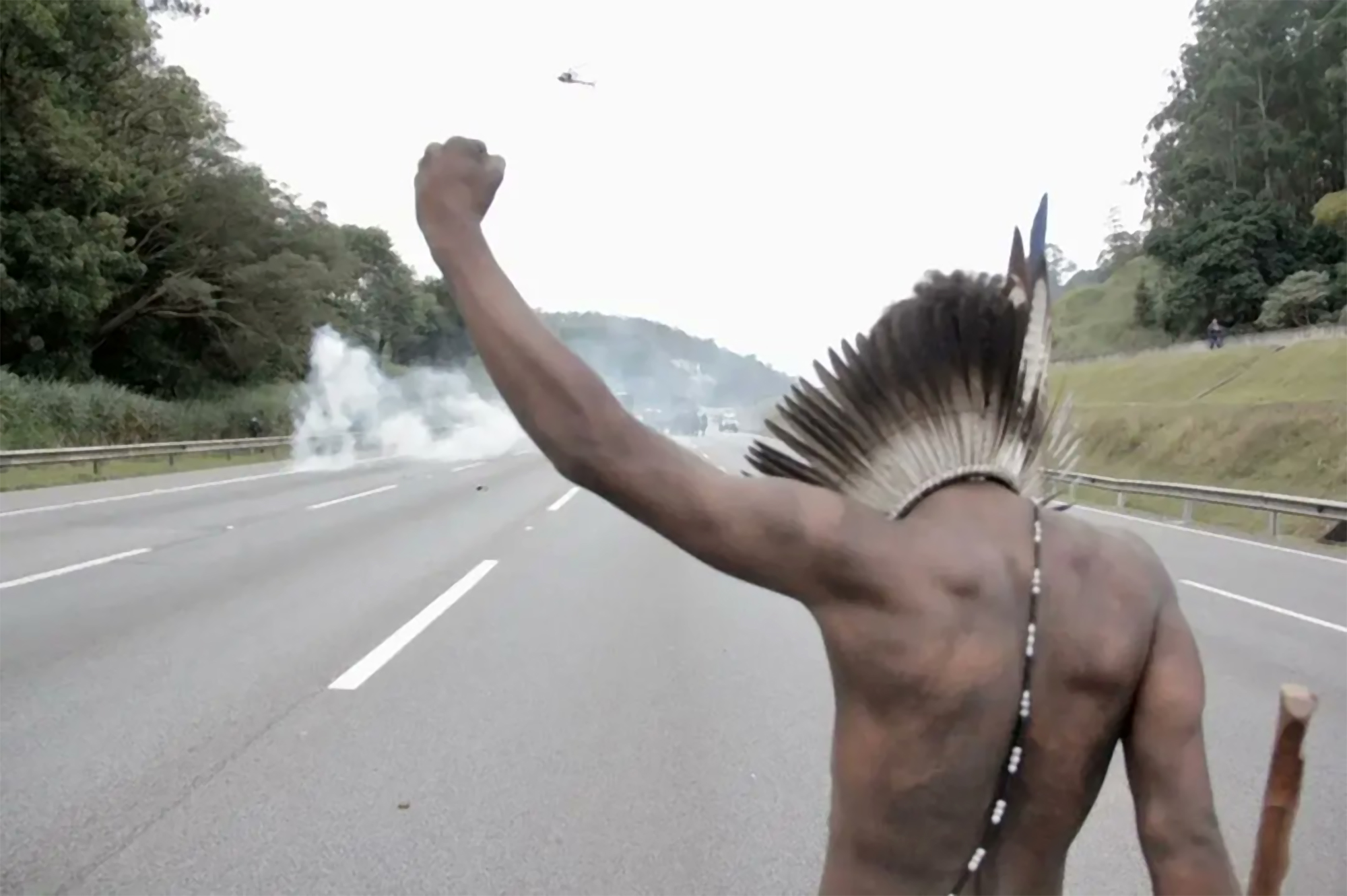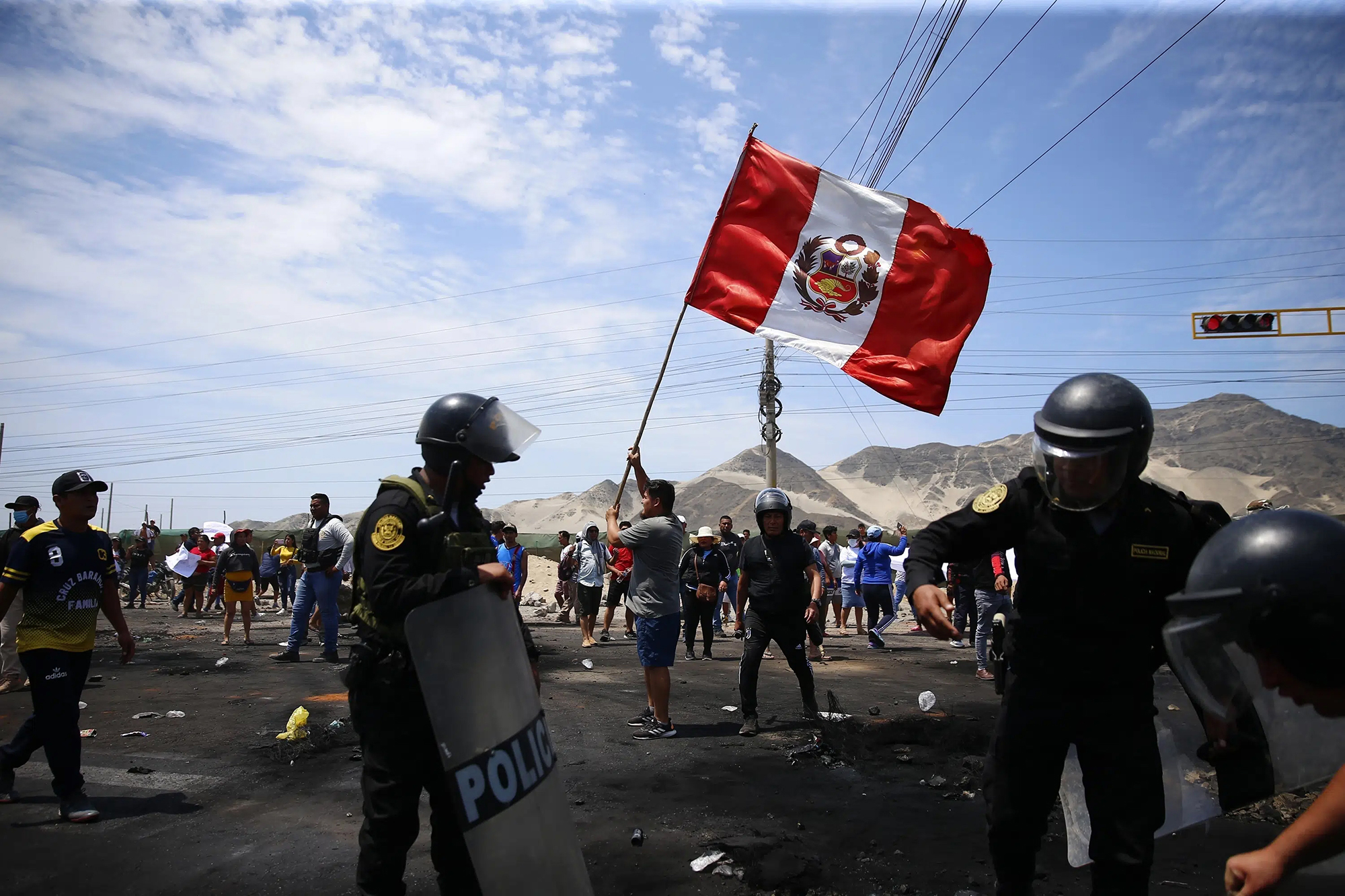“The right of consultation of indigenous communities is constantly being violated”
- Maya lawyer Edgar de León travels from Guatemala to Euskal Herria as part of the campaign “Life at Stake” of the Non-Governmental Organization Mugarik Gabe. He has made us a place on the dating agenda to publicize the reality of our country, and we have talked about the criminalization of defenders of the land and the rights of indigenous peoples, especially the case of Bernardo Caal Xol, which he defends.

Transnational corporations, oligarchy and criminalization of social protest. The report The case of Guatemala deals with the criminalization of people working in the defence of the territory. It explains that criminalization is an articulated strategy for the benefit of transnational corporations and oligarchies, with a clear objective: to protect the political and economic interests of the high class and the elites. Although it is a widespread practice throughout South America and the Center, the report has focused on Guatemala, understanding that the case of this country is paradigmatic, so it can be clarifying to understand the generalized strategy.
In order to contextualise current criminalisations, the report goes back several years. It is precisely within the Cold War that the war that lasted between 1960 and 1996 was ended by the Peace Accords. IN an extended war for almost four decades, the most violent times were those that followed the triumph of the Sandinista Revolution in Nicaragua; to stop the strengthening that the triumph of the Sandinistas could provoke in the guerrillas of Guatemala, the government of Fernando Romeo Lucas García undertook a policy called “destroyed land” in the area dominated by the Mayans, causing the massacre, and making the However, the offensive continued the war, and this is clear from the report that “the interested alternative to peace will be widened”. The Peace Accords were signed in 1996.
As the presence of transnational corporations has begun, the clash between the indigenous and the neoliberal conception has emerged.
It was originally argued that sectoral agreements needed to move towards democracy in the political arena and to push for changes towards a fairer distribution of wealth in the social and economic spheres. However, “the fact that successive governments breached much of these agreements led to a situation of absence of armed conflicts in the country, but did not change the political matrix, let alone the social one. It can be said that in later years the foundations were laid for the establishment of the neoliberal model, as in the rest of the countries of Latin America”. Starting with the privatization of public services, neoliberal policies began, making the country a fertile ground for transnational capital. “The liberalization and privatization of strategic sectors are key to putting the country in the hands of transnational corporations (…) the State helps exploitation because it implements irritating taxes and approves the necessary laws. And they also have the support of local oligarchies,” the report says.
Thus, as the presence of transnational corporations has begun, the clash between the indigenous and neoliberal conception has emerged, giving rise to conflict. In the words of the Mayan association Uk’ ux B’e, “transnational corporations believe that indigenous people, our territories, our ecosystems and biodiversity are a raw material for privatizing, processing and selling on the global market.” Faced with this logic, several people are rising up in defence of their lands and rights, and their criminalization has become a strategy to protect the political and economic interests of a privileged minority. A strategy that includes even death. According to data published by Global Witness, in 2020, 227 land defenders were killed, 13 of them in Guatemala.
Bernardo Caal Xol q’eqchi’ is an indigenous person who experiences criminalization on his skin. Since 2015, he has defended the Oxec and Cahabon rivers and the rights of the communities of Santa Maria Cahabón against the OXEC hydroelectric complex being built in the department of Alta Verapaz in northern Guatemala. He was therefore arrested in 2018 and after more than three years of pre-trial detention he has been sentenced to seven years and four months in prison. Through legal remedies, contrary to the provisions of International Labor Organization Convention 169, Caal Xol managed to demonstrate that the indigenous population had not been consulted on the construction of the hydroelectric zone, resulting in the construction being paralyzed for six months. Subsequently, the workers of the company Netzone (OXEC contractor) denounced it for alleged violence against the workers of the company. The jury condemned him to accuse of illegal detentions, with aggravating circumstances and burglaries. “We’re in front of an assembly,” says attorney Edgar de León.
.png)
Tell us Edgar, at what point is the case of Bernardo Caal Xol?
At the beginning of the construction site of the hydroelectric nucleus, people began to appear for measurements and their inhabitants did not know exactly what they wanted to do in their surroundings. Thus, the indigenous peoples elected Bernardo as their representative, and thanks to his research the intention of building a hydroelectric complex was discovered. When Bernardo proved that he had not been consulted, the company sued him, but the accusations have not been proven in the judicial process.
There are two instances: the first imposes punishment or acquittal, and the second analyzes whether the appellants are right or not. In the case of Bernardo, we have exhausted the ordinary procedure and have now begun the extraordinary procedure before the Criminal Court of the High Court of Justice of Guatemala. But here, too, the trends we've seen in the process are accepted. Since the beginning of the process we have seen how Bernardo’s human rights have been violated, aberrations, system failures have been detected, and judges have slipped into favor of those behind the complaint. All we have left is to file an application for amparo with the Constitutional Court. We would like the judgment to take into account the human rights violations committed in the case of Bernardo. But if it did not do so, we would have no choice but to turn to the international community.
What are your forecasts?
In order to understand the reality of Guatemala, it is essential to clarify that the State is co-opted for economic powers. We are experiencing a hopeful moment when the Government of Guatemala and the United Nations began the process of state cleansing [in 2007 the agreement between the Government of Guatemala and the UN was signed, and hence the International Commission against Impunity of Guatemala (IGC)) emerged and the identification of entrepreneurs, officials and others linked to corruption. In 2015, steps were taken to the prison of then-president Otto Pérez Molina, and some institutions began to be more transparent. But corruption is being repeated and the expelled are becoming more aware of the control of everything. It can be said that everything depends on power, that there is no democratic structure.
Thus, given that this sector with power is taking over again, in the case of Bernardo the situation is not very encouraging. In any case, with the last resort of amparo, I say, we will exhaust all avenues. According to this, we will see whether or not the next step is taken, whether or not to go to the international arena.
We would like to turn communities into subjects with rights to be able to sue.
What would this step entail?
Complaint against the State. Because if the Constitutional Court ignores the violations committed in the proceedings, we would be faced with a problem that goes beyond the judge who has brought the case, and would also include the State.
If we address ourselves to the international level, we would file a complaint with the Inter-American Commission on Human Rights, a case in order to take it later to the Inter-American Court of Human Rights. Once we reach this point, we would hope that the statue would be punished for all the violations committed in the case of Bernardo.
At the same time, we intend to turn affected communities into subjects of rights, although we know that the task is more complex. Because you can look at the damage caused to Bernardo, there's that possibility, but what about communities? How would they look? Because hydroelectric activity is still working. For this reason, we would like to turn communities into subjects of law in order to be able to sue. Thus, we would bring two cases in the Inter-American Commission on Human Rights: that of Bernardo for the violation of the rights suffered in the judicial process and that of the communities for the lack of consultation of the indigenous peoples. If they prospered, the commissions would lead them to court and the state should defend itself. If we succeed in doing so, we would hope to change the situation and repair all the damage caused by the state. Unfortunately, international denunciation is a legal battle of 10-15 years. But that's what we have left.
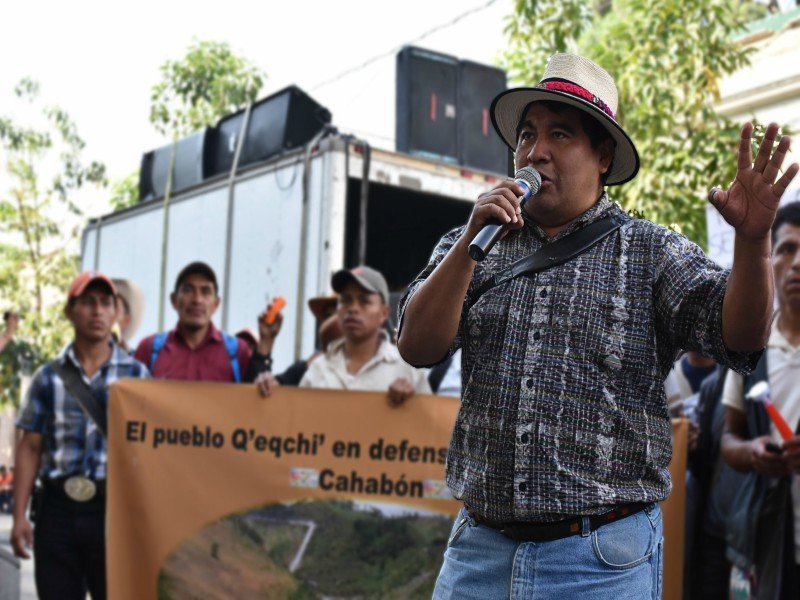
Anyone who stands up for land and human rights risks being criminalised. As is known, when a person is criminalized, it is done with an intentionality that goes beyond that person. What do these criminalisations respond to?
Criminalization is very common in Guatemala. Because it is not only indigenous peoples that are being criminalized, but there are also many other criminalized social manifestations: unions, feminists, supporters of sexual diversity… all that demands rights. Criminalization can be extreme, to the point of killing people, who killed a farmer before coming here [Ramón Jiménez, member of the Committee for Peasant Development CODECA]. And they also suffer families: stigmatize, control, telephone threaten... I think the intention is to keep people silent, frightening. And they use all the mechanisms that they have for it. Because if someone in the community is processed, the message that's being transmitted is that whoever follows their path will also end up the same. That is why the community organisation has been weakened, but the ideal would be for the communities to be in a position of greater resistance and solidarity with their fellow detainees.
Caal Xol himself has denounced that, before being imprisoned, several media outlets expressed their opposition. What role do the media play in criminalisation processes?
All available intermediaries are used and commercial media offer support. They stigmatize the person, they tell the public that he is evil because he is against development, in his words. The message they send is that indigenous peoples are lagging behind and do not understand that the hydroelectric power is moving in favour of Guatemala in every way. This being so, why the hell are we against it? That's what they broadcast.
Reality, on the other hand, is very different. To say that the benefits are for Guatemala has little truth.
Chixoy is a decades-old hydroelectric power plant. This hydroelectric plant, built for the sale of energy to companies, could not be used by neighboring communities until about ten years ago. Mining, monoculture, hydroelectric… it is well known that none of these activities will benefit the community, let alone the country. They sell all the resources and the beneficiaries are large companies from countries like Mexico or Panama. For example, if mining in Guatemala is a law, which determines that only 1% of what leaves the mine belongs to the State, that 1% is divided between the State and the municipality where the mine is located. There is little left. And without taking this into account, the frauds that occur before starting extractive activity, because the right of consultation of indigenous communities is always constantly being violated.
In addition, the damage these companies do is not limited to resource extraction. They also cause disease, which has been documented and demonstrated. It's about trying to keep it going. Yes, any such action in Guatemala is condemnable and transferable to the Inter-American Commission on Human Rights.
That is the picture, and people have seen the need to organize it. Several hydroelectric plants have had to flee in the face of resistance from some communities. But the fact that some projects have gone does not mean that the initiative has disappeared. Probably, the moment the communities see that it relaxes will test it to give way to another project of these characteristics. That's why it's important not to lower your guard.
.jpg)
Commitment to a better future
Before turning off the recorder, de León wanted to share the indigenous feeling, explaining that the struggle of Cool Xal is the struggle to leave a better future to our descendants. And he said it bluntly: capitalism is not possible.
“Indigenous peoples have capitalism as an enemy. Everything is getting broken: philosophy, know-hows... As a system that has trapped everything, I cannot bet on it, because it will catch the future of my children and generations to come. Today we have resources that gamble on indigenous peoples, such as the United Nations declaration in defence of the rights of indigenous peoples, it is because our ancestors fought and some lost their lives. We follow that path, because if we keep our arms crossed we will end that heritage. We are talking about many indigenous peoples trying to recover what gives meaning to existence: why I exist, why, why, why, what is the reason why I live… we are talking about those questions, because life has to have some meaning. If there's something absurd, that's individualism; if I focus my life on food and stuff, I don't know what it would be -- maybe an automaton. Something mechanical. But people are not for that, I think. According to the indigenous perspective, life has a deeper sense, and that's why we talk about alternative. When the indigenous peoples of South America talk about “living well” [refers to Good Living], what do they talk about? It’s an alternative to going deeper.”
In solidarity with Cool Xal, he wanted to stress the need to show solidarity with this alternative.
49 urte preso pasa ondoren, libre utzi dute Leonard Peltier AEBetako ekintzaile autoktonoa. Otsailaren 18 honetan heldu da bere senide eta lagunen artera 80 urte dituen preso-ohia.
Oinarrizko maia komunitateko U Yich Lu’um [Lurraren fruitu] organizazioko kide da, eta hizkuntza biziberritzea helburu duen Yúnyum erakundekoa. Bestalde, antropologoa da, hezkuntza prozesuen bideratzaile, eta emakumearen eskubideen aldeko aktibista eta militante... [+]
It is no coincidence that Columbus Day, that of the Civil Guard and the Virgen del Pilar coincided on that date. The three represent oppressive structures (statue, army and church). On the other hand, there is indigenous resistance and population that the Spanish State... [+]
When in the 16th century the Spanish conqueror Francisco de Orellana sailed the Amazon River, he said that there were big cities on both sides of the river. Few believed then, let alone in the following centuries, when no trace of what the conquest itself had destroyed was... [+]
On March 23, the prestigious French publisher Seuil launched a new literary section called “Indigenous Voices”. On the web Un livre dans ma valise (A book in my beacon), the director of the section Laurence Baulande explained that then the aim of the project is to publish... [+]
Pasa den abendutik Perun gertatzen ari diren istiluak, herrialdearen egoera politiko ahularekin lotu dituzte munduko hedabide nagusiek. Pedro Castillo presidente ezkertiarraren noraeza, haren kargugabetzea, Andeetako eskualdeetako herritarren altxamendua eta haien kontrako... [+]














